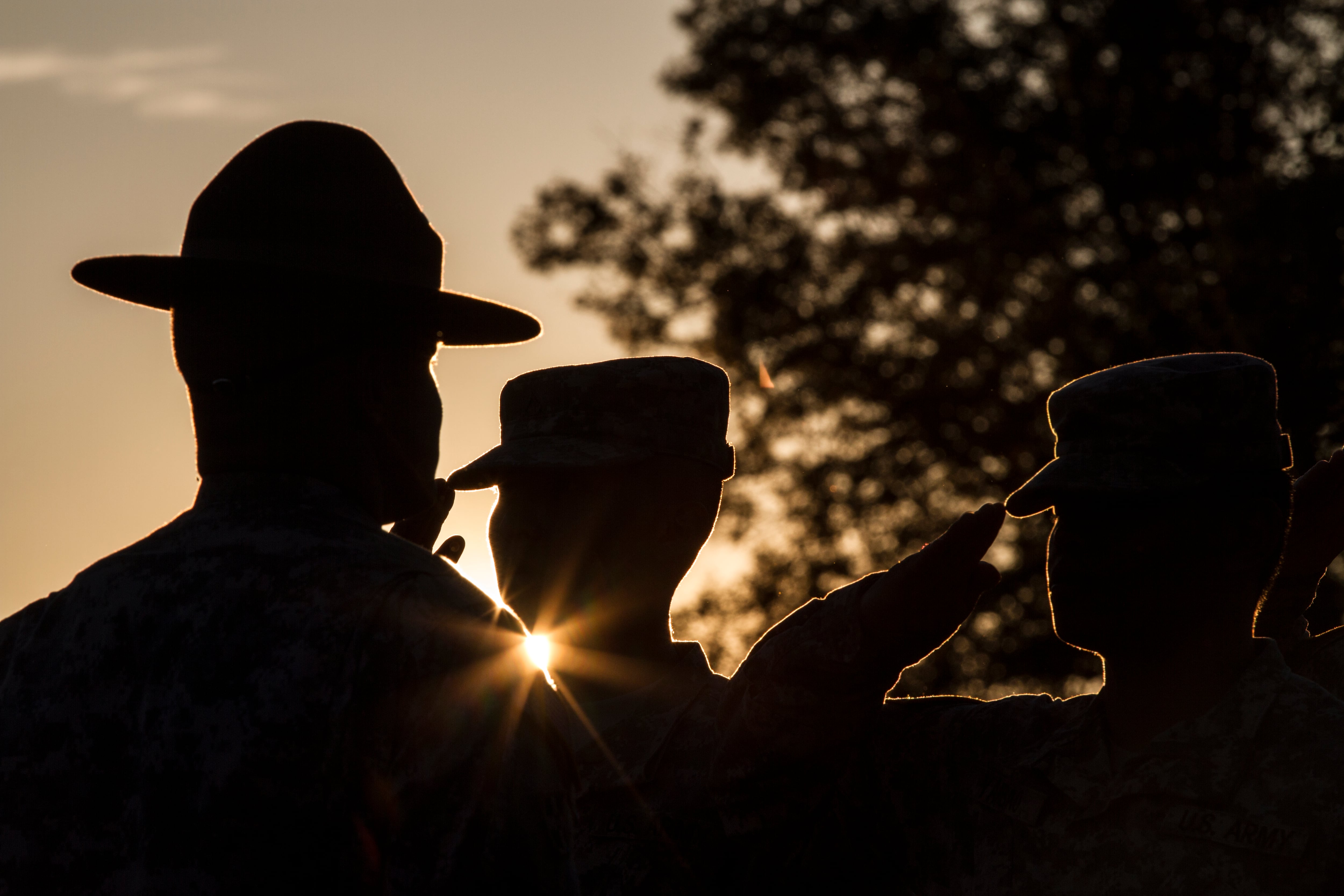Remembered by fellow soldiers as a gregarious, capable leader, Col. Gene Montague spent his final hours pushing himself for the greater good.
Montague, 51, was pulled from the water May 22 during the triathlon portion of an Ironman 70.3-mile race in Chattanooga, Tennessee. Emergency personnel rushed him to a local hospital where he later died, according to a statement from race officials; local news reports, citing the county's medical examiner, said he suffered a heart attack.
The 33-year Army veteran competed in the event as part of Team Zero, a group raising donations to stop prostate cancer. He personally raised nearly $3,000 as part of a larger effort that's topped $64,000.
Montague's wife told the local ABC affiliate that her husband had battled high blood pressure and cholesterol, but was taking medication for both. While he hadn't competed in a 70.3-mile triathlon before, he had run marathons and was a senior-level martial arts instructor.
Many of his students and classmates took to social media to share their memories:
"He was truly an inspiration and mentor," said Master Sgt. Cheryl Cones, who worked alongside Montague in the G-3/5/7 office, via email. "No matter what was going on, he always had time for others. … Going anywhere with COL Montague was like going to a family reunion. He literally knows people everywhere. I have actually heard people refer to him as the 'Mayor of the Pentagon,' always having a huge smile and shaking hands."
Montague enlisted in 1983, according to his official biography, then earned a commission in 1987 via the ROTC program at Brooklyn's Polytechnic University. While he may have been a well-known Pentagon face, his duties took him all over, from a civil affairs unit in Kosovo to director of development (counterinsurgency) with Combined Forces Special Operations Component Command-Afghanistan during Operation Enduring Freedom.
Not all assignments involved far-off lands: He served as an assistant professor with the University of Massachusetts-Amherst ROTC program and as a commander of 414th Civil Affairs Battalion, an Army Reserve unit based in Utica, New York. His leadership roles weren't limited to civil affairs, with executive posts in both infantry and special operations units before his final station in Fort Belvoir.
Montague "was the best boss," said Capt. Benjamin McClellan, the colonel's executive officer at Belvoir, via email. "He set out to mentor me and ensured that I developed professionally as an Army Reserve officer.

"I enjoyed the many conversations that we shared. He continuously stressed the importance of education, faith and family. I miss his humor; I often found myself the subject of his good-natured ribbing."
Montague's awards include the Defense Meritorious Service Medal (one oak leaf cluster), Meritorious Service Medal (two clusters), various campaign and joint-service honors, Expert Infantryman Badge, Parachutist Badge, and airborne badges from both Honduran and German forces.
He's survived by his wife and four children.
"We are deeply saddened by Gene's passing, and we send our thoughts and prayers to his family," Brig. Gen. Bob Harter, director of the Office of Chief, Army Reserve, said in a news release. "He embodied a spirit that was larger than life; whose infectious, "can-do" attitude and gregarious demeanor made him a joy to not only serve with, but also call our friend."
Kevin Lilley is the features editor of Military Times.





